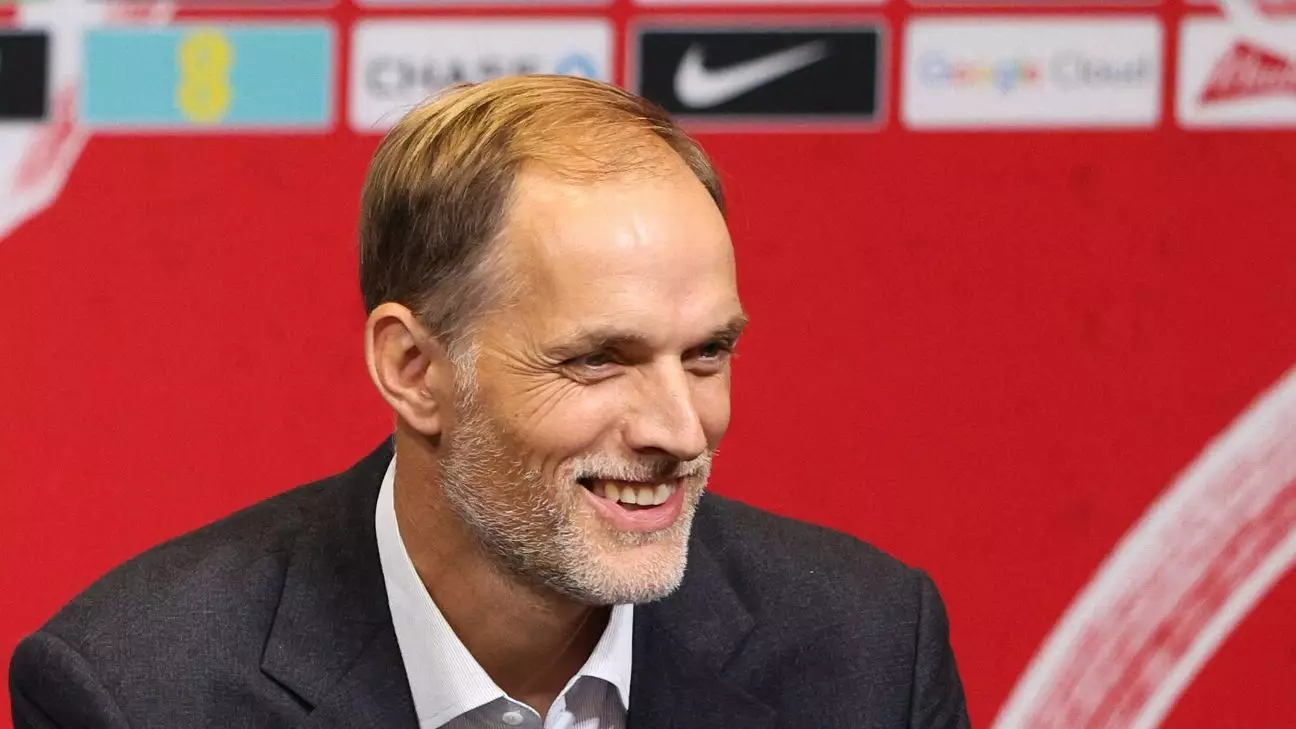The appointment of Thomas Tuchel as England’s men’s football manager marks a significant turning point in both his career and English football. Tuchel, who has built a distinguished résumé as a coach in several top European leagues, finds himself at the helm of a national team that has not won a major tournament since 1966. His recent statement about this venture being a “step into the unknown” highlights both the challenges and the potential rewards that await. It signals Tuchel’s awareness of the historical weight carried by the England team, coupled with the skepticism that often surrounds foreign figures in positions of national pride.
Tuchel’s 18-month contract, while providing a framework within which to operate, also presents a sense of urgency. England’s aspiration to secure a second star on their shirt—symbolizing another World Cup victory—places him under immediate pressure to perform. His mixed experiences in previous managerial roles indicate the need for a steadfast commitment not just to results but also to establishing a cohesive team culture.
The Football Association undertook a robust search for Southgate’s successor, reportedly considering a range of candidates, including domestically based options. This extensive process underscores the significance of Tuchel’s appointment, particularly given England’s recent successes under Southgate, who led the team deep into Euro 2020 and the 2018 World Cup. Tuchel enters a landscape where the bar has been set high, raising expectations among fans and stakeholders alike.
In conversations about leadership, Tuchel emphasized the importance of a clear focus and streamlined communication within the squad. His perspective on the 18-month timeframe suggests a desire to cultivate a sense of urgency while simultaneously allowing for strategic planning. This dual approach could serve as a pivotal factor in navigating the challenges of international football, especially considering his previous experience with player management at club level.
Tuchel’s reflections on the English national anthem further illustrate the delicate balance he must strike between honoring tradition and asserting his own identity as a foreign manager. His appreciation for the emotional resonance of the anthem reveals a level of respect that is crucial for gaining acceptance from players and fans alike. However, his fence-sitting on whether to sing it himself reflects the complexity of navigating national pride as a German in charge of the England team.
The historical context of foreign managers in English football is both rich and contentious. With only two previous managers of foreign descent—Sven-Göran Eriksson and Fabio Capello—Tuchel’s role adds a new layer to this narrative. His success will likely redefine perceptions of foreign leadership in English football, but it also carries the burden of elevating the team from historical disappointments to newfound glory.
In light of recent successes, Tuchel acknowledges the “consistent progress” made by Southgate’s England, characterized by back-to-back finals in the Euros and a World Cup semifinal. However, as he aptly stated, this success has not yet translated into silverware, a reality that his appointment aims to change. The combination of a talented squad and Tuchel’s strategic insights from club football may offer the recipe for greater achievements.
The emphasis on integrating club methodologies into international play is particularly intriguing. Tuchel’s experience in managing elite clubs has endowed him with knowledge that could be invaluable when adapting to the pressures of international fixtures. However, he also acknowledges that success hinges on variables such as team momentum, injury management, and fortuitous moments during matches—factors that often stay beyond a coach’s control.
Ultimately, Tuchel’s goal is clear: he wants to transform England’s potential into tangible success, a feat that requires not only tactical acumen but also the cultivation of player confidence. He is aware that players in the squad are already accustomed to high-level competition, pointing toward a generational shift in English football that celebrates both skill and mental fortitude.
As he prepares to commence his duties, Tuchel’s words resonate with a sense of optimism tempered by realism. The journey ahead may be fraught with challenges, but his commitment to returning glory to the England national team is a cause that resonates deeply with football fans. By blending his rich coaching experience with a collaborative team atmosphere, Tuchel aims to not only secure the coveted second star but also to establish a legacy that transcends victories alone.

